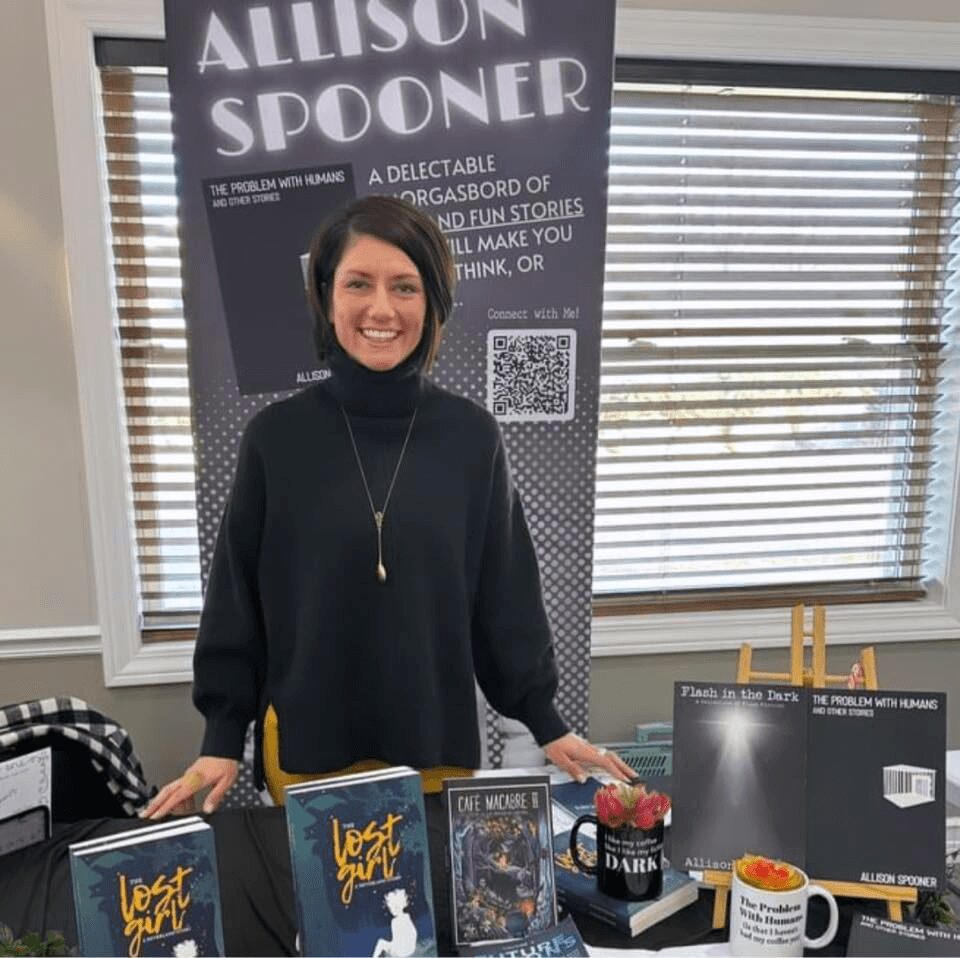We’re excited to introduce you to the always interesting and insightful Allison Spooner. We hope you’ll enjoy our conversation with Allison below.
Allison, first a big thank you for taking the time to share your thoughts and insights with us today. I’m sure many of our readers will benefit from your wisdom, and one of the areas where we think your insight might be most helpful is related to imposter syndrome. Imposter syndrome is holding so many people back from reaching their true and highest potential and so we’d love to hear about your journey and how you overcame imposter syndrome.
While I haven’t completely overcome imposter syndrome, I don’t think anyone ever truly does, I have found a way to counteract it. Instead of referring to it as a syndrome-a characteristic combination of opinions, emotions, or behaviors (ew!)-I refer to it as imposter tendencies. When we say we have imposter syndrome, we are owning it. We are giving it power over us. When we say, “I have the tendency to feel like an imposter, but I’m not,” we take back the power. I don’t own it. I don’t say I HAVE imposter syndrome. I don’t make it a characteristic of myself. I just sometimes feel like an imposter, and that’s ok, we all do.
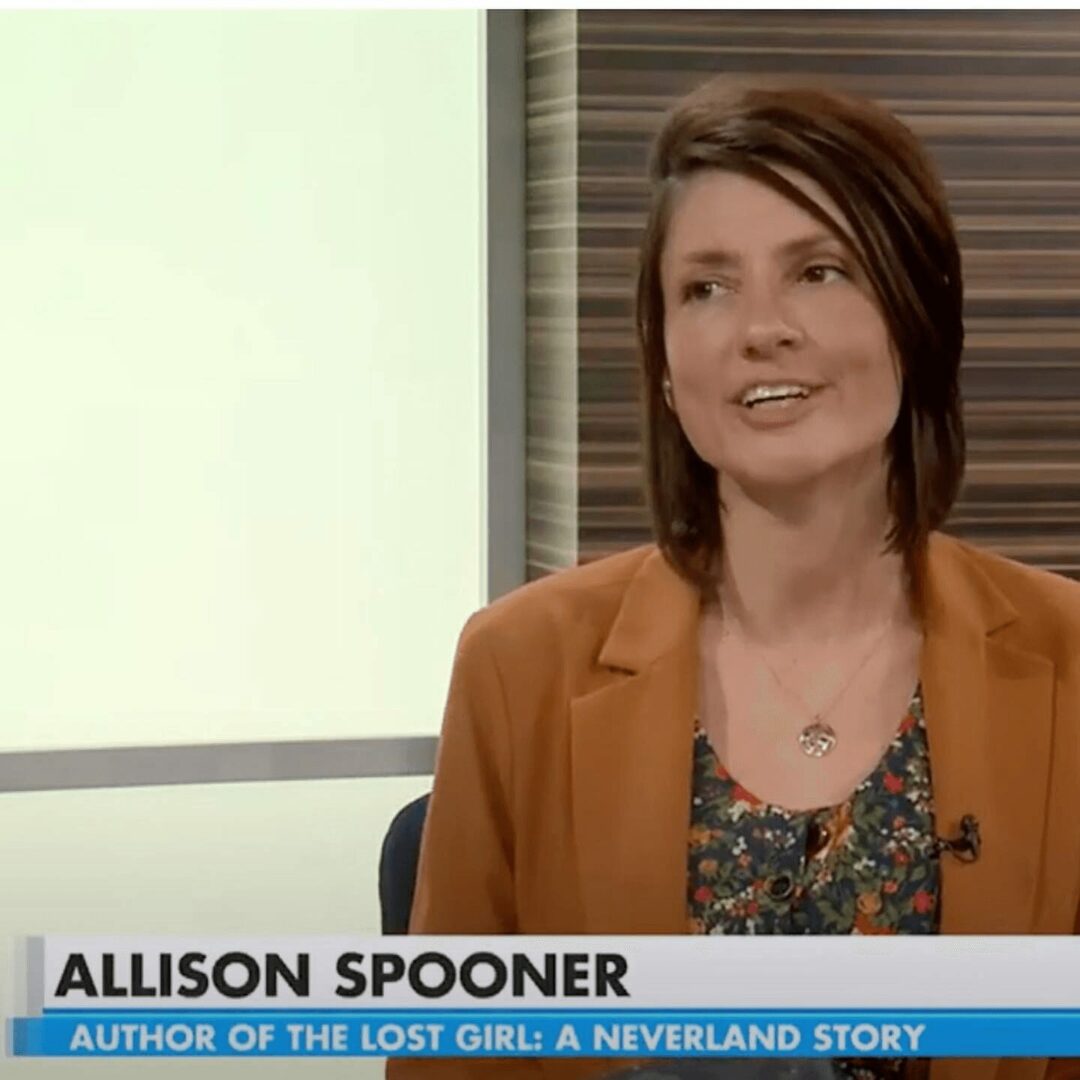
Appreciate the insights and wisdom. Before we dig deeper and ask you about the skills that matter and more, maybe you can tell our readers about yourself?
I’m an author and I’ve started saying I write emotional fiction with a hint of sarcasm. I’ve published two books of flash fiction (stories less than or around 1,000 words) and most recently, a novel called The Lost Girl: A Neverland Story. I pride myself on stories that pack a punch and my work has been called, “unique works of art,” “brilliant, disturbing, and thought-provoking,” and readers have said my stories will make you “laugh, think, and/or flinch.” I love shocking and surprising endings but I also love getting to the heart of what makes people tick. I love when people say my work made them cry because it means they related to in some very real way, and that’s what I want.
I’ve always tried to write about very real emotions even when I was writing about fiction. In The Lost Girl: A Neverland Story, Peter Pan’s great-granddaughter finds herself in Neverland when her mom sends her there to fight the terminal cancer threatening her life. Yes, we’re in Neverland with lost boys and pirates and fairies, but we’re also watching a 13-year-old face her own mortality and deal with very BIG feelings. Readers have said, “I don’t know if I’ve ever found an author that is able to capture emotion in its most visceral and raw form the way Allison does,” and my favorite review of The Lost Girl stated, “The Lost Girl” is more than just a retelling of a beloved classic; it’s a testament to the strength of the human spirit and the enduring legacy of stories that continue to inspire generation after generation.” I don’t share these to brag, but because they prove that I am doing the very thing I set out to do with my writing, connecting with people in a very real, and sometimes, raw, way.
My next book takes that goal even farther. On September 30th, I will release, “The Things We Cannot Change: A Story about the Ghosts Created by Addiction.” This book will be written as fiction but is based on my very real experiences growing up with and losing my alcoholic father. In the book, 18-year-old Callie is literally haunted by the ghost of her father one year after she loses him to alcoholism. While I was never face to face with an actual ghost, his memory and my feelings about our relationship have haunted me for years. By using my real experiences and feelings to craft a story about emotions many have a hard time facing, I hope to help myself and others heal.
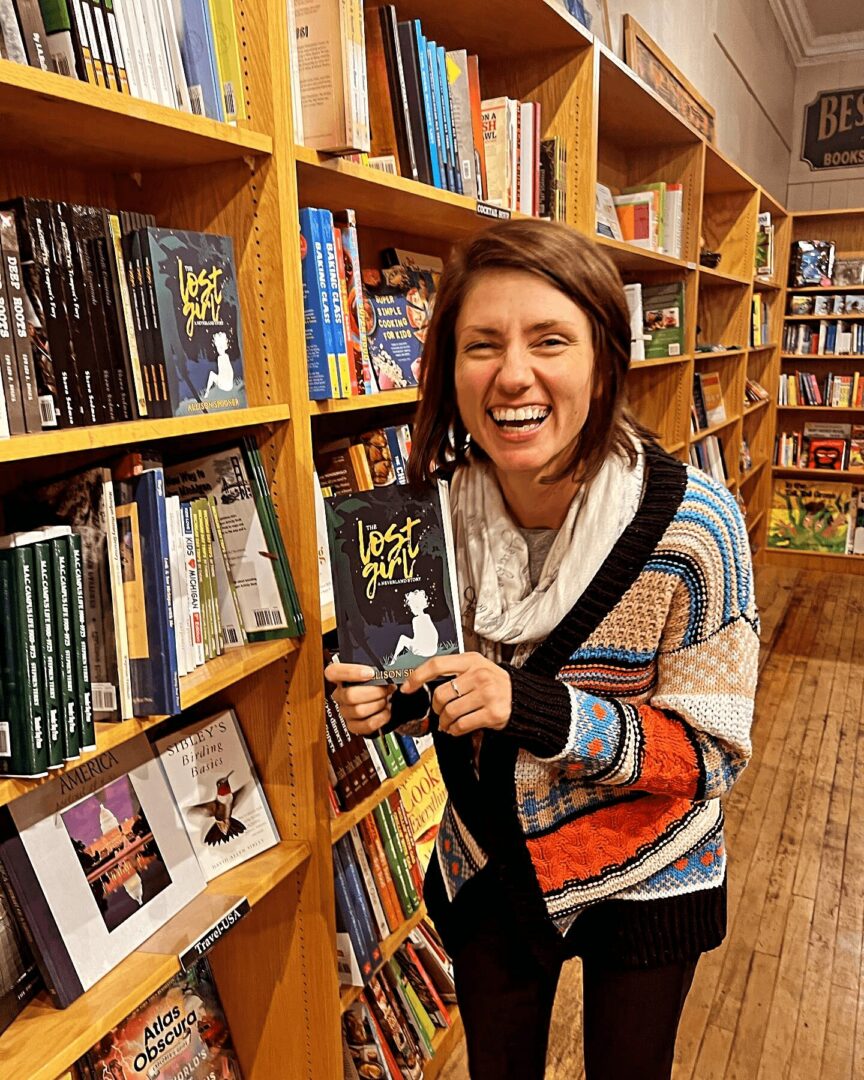
If you had to pick three qualities that are most important to develop, which three would you say matter most?
I think learning, creativity, and confidence are three things that have helped me move forward as a writer and author.
Learning is so important in the publishing industry especially as a self-published author. Everything is constantly changing from the tools we use to publish to the different ways we market ourselves and if you’re not willing to learn and adapt, you will not make it very far.
And I don’t mean creativity in the way you’d think. Yes, as a writer I have to be creative in my writing, but as a writer who wants to continue to publish books, I have to be creative in how I publish those books and market myself. I have to stand out among thousands (maybe even millions) of other writers trying to do the exact same thing I’m doing. When I was young, I always wanted a traditional book deal. But as the industry changed, I had to learn my different options and be creative in how I approached them. When I was stuck in a writing rut, I turned to flash fiction to get me out. When I knew the “traditional publishing” world wouldn’t publish flash fiction, I self-published. I got creative in my approach to writing and publishing.
And I had to have the confidence to do all this. Writers are notorious for being self-conscious or suffering from writer’s block. But if I was going to get my writing out in the world, I had to be confident enough to put it out there. And if I was going to get people to read it, I had to be confident enough to talk about it and tell people about it and even *gulp* brag about it. I have to be confident enough in my work to share it on social media and confident enough in myself to keep moving forward. It’s ok to feel a little unsure, but sometimes you just have to ignore those feelings and do the things anyway. And that takes confidence.

All the wisdom you’ve shared today is sincerely appreciated. Before we go, can you tell us about the main challenge you are currently facing?
At the moment, the biggest challenge I face is being a self-published author in a world that hasn’t quite accepted that as a valid form of publishing. Many think that self-published authors only decided to publish their books themselves because they were rejected by the big publishers–and maybe that was true once. But today, many authors are choosing the self-publishing route without even trying to get picked up by a larger publishers. There are many reasons for this and each author has their own motives but for me, I can publish my own books so much faster than if I had to wait for a publisher. Self-publishing also allows me more freedom in my writing choices and a larger chunk of my royalties.
But being self-published means doing everything, including my own marketing, which is tough when many people assume your book will be bad because you self-published it. It’s also a challenge because it’s a very noisy world out there and breaking through that noise to get eyes on my baby book (without a lot of marketing dollars behind me) is like shouting in the middle of Times Square on NYE.
Unfortunately, there are no surefire ways to overcome these challenges. All I can do is keep talking about my book, getting it in front of people, sharing my story, and convincing the world that you don’t have to be published by a big publisher to have a good book. I’ll continue researching marketing methods and working my butt off to create books people want to read, and that’s about all I can do.
Contact Info:
- Website: https://www.allisonspoonerwriter.com
- Instagram: https://www.instagram.com/authorallisonspooner
- Facebook: https://www.facebook.com/authorallisonspooner
- Other: Also on TikTok as @authorallisonspooner
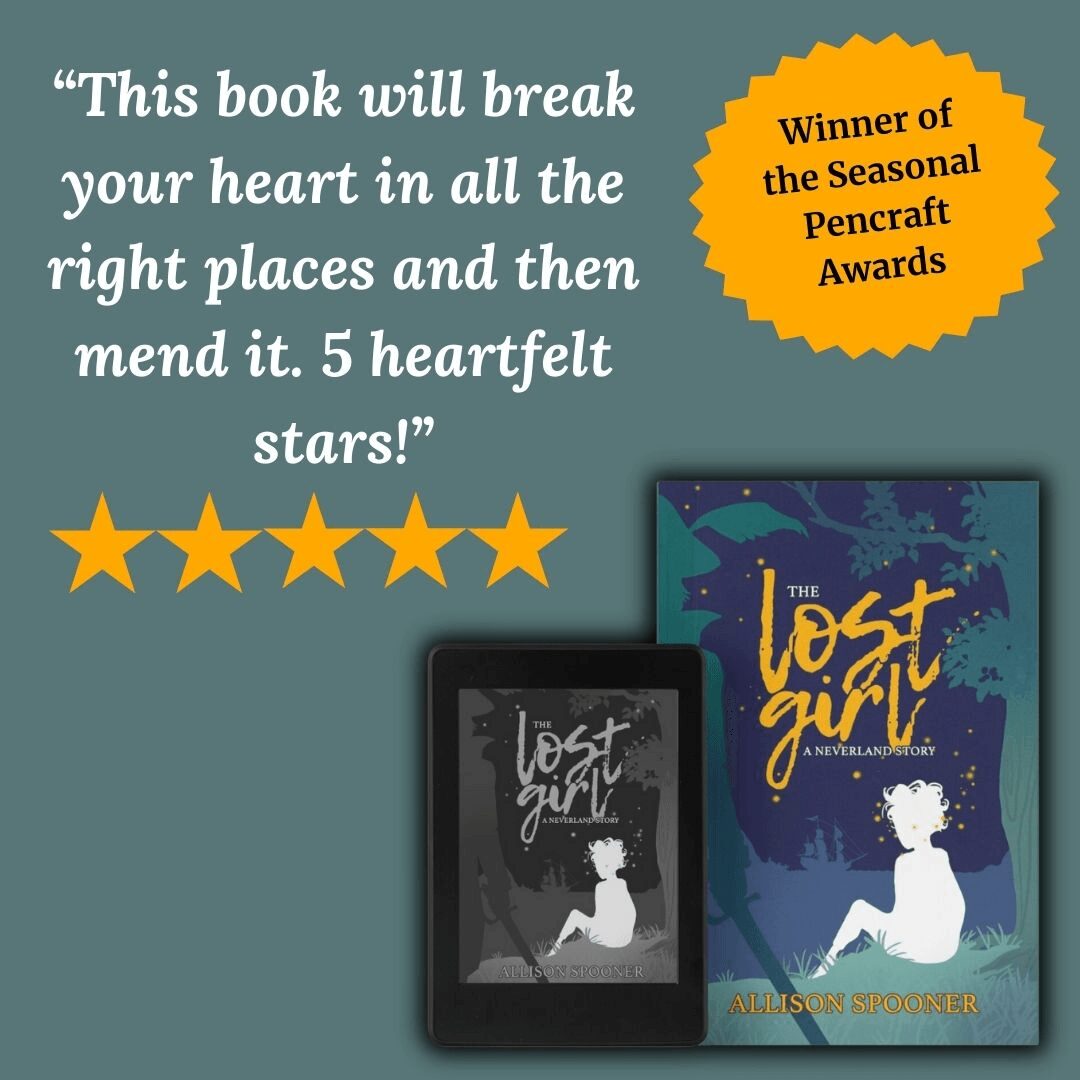
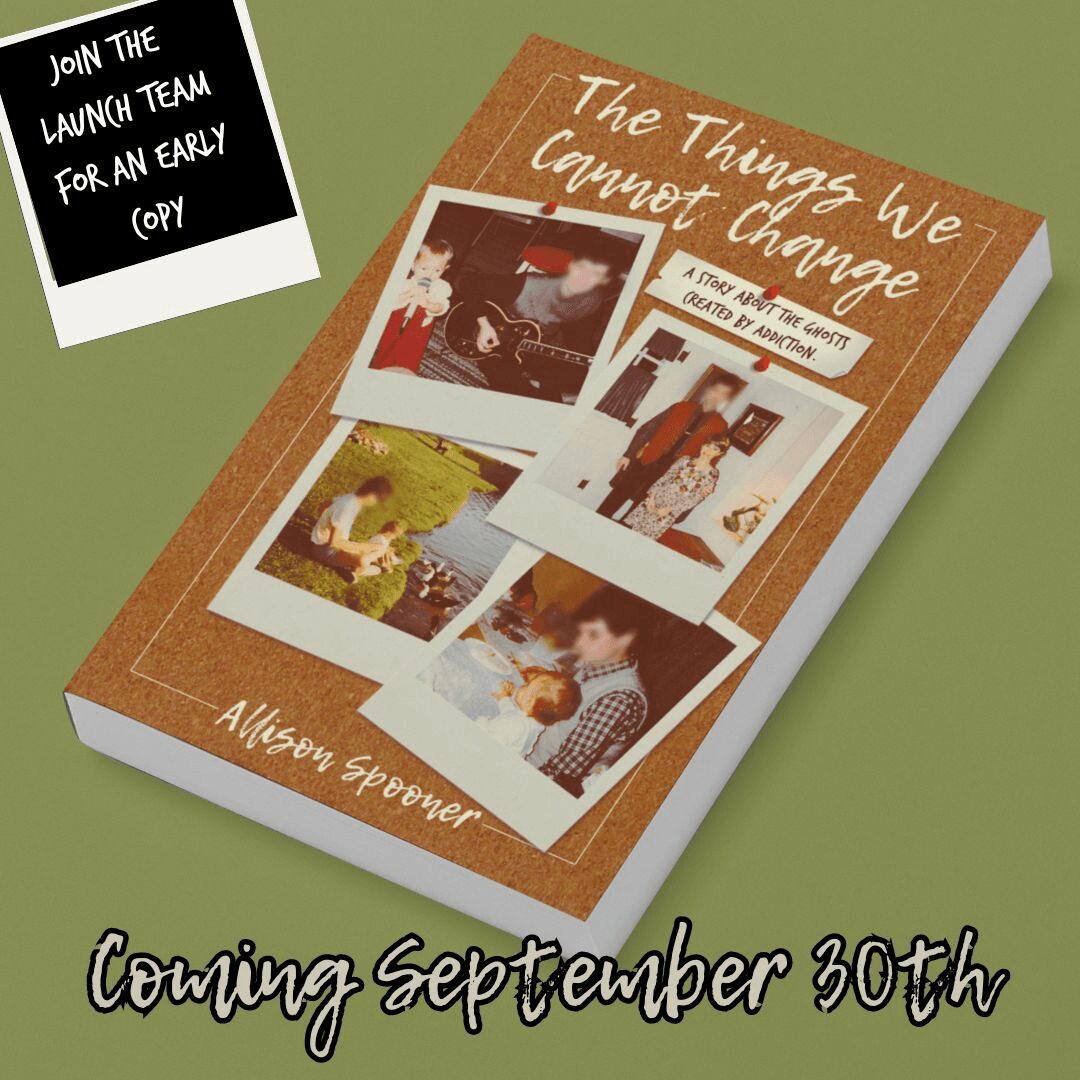
so if you or someone you know deserves recognition please let us know here.

